
As a pediatric nutritionist, I know that finding the right formula for your infant can be difficult and sometimes overwhelming. It’s important to note that all babies are different and have their own nutritional needs; therefore, what may work best for one baby may not necessarily work well for another. With so many options available on the market today, it can be hard to know which will give your baby the most nourishment during these early months of life. That’s why I’m here to help guide you in making an informed decision about choosing the best formula milk for your little one aged 0-6 months old!
In this article, we’ll discuss how to evaluate the various formulas out there and look closely at some of my top recommendations. We’ll also examine potential side effects associated with certain formulas and provide tips on how you can ensure your baby gets all the nutrients they need while still meeting your budget requirements. By the end of this article, you should feel more confident in selecting a formula that is tailored to your infant’s individual needs.
So let’s get started! Whether you’re just starting out or already familiar with formulating decisions about feeding infants, I hope this information helps empower you with knowledge so you can make educated choices when it comes to providing proper nutrition for your sweet baby from age 0-6 months old.
Overview Of Infant Nutrition
From the moment we are born, nutrition plays a critical role in our development and wellbeing. It is just as essential for infants during their first months of life, when their bodies and brains undergo rapid growth. As parents, it can be difficult to know what kind of formula milk will best nourish your baby from 0-6 months old. Coincidentally, this article seeks to provide guidance on making such an important decision.
The American Academy of Pediatrics (AAP) recommends that all exclusively breastfed babies continue nursing until at least six months and preferably 12 months of age. If a mother cannot or chooses not to breastfeed, infant formulas should provide adequate nutrition for healthy growth and development. The AAP also suggests avoiding cow’s milk until after 1 year of age due to its lower nutrient content when compared with human breastmilk or suitable infant formula options. Therefore, selecting a quality formula that is nutritionally balanced is key for optimal health.
Knowing When To Introduce Formula
When it comes to introducing formula milk into a baby’s diet, the right time can vary. In general, breastmilk provides all of the nutrition that a baby needs for his or her first six months and so many pediatricians recommend exclusive breastfeeding during this period. However, some babies may need additional supplementation before they reach their sixth month; if you think your infant may require extra nutrients beyond what is provided through breastmilk alone, consult with your pediatrician about adding in formula.
It’s important to consider both the timing and type of formula when making the decision to introduce supplemental feeding. The best way to determine which kind of formula is most appropriate for your child is by discussing with your doctor as each baby has unique nutritional needs. A variety of formulas are available specifically designed for use from newborn age up to 6 months old such as cow-based milks, plant-based milks, elemental formulas and hydrolysates. Some also contain prebiotics and probiotics beneficial for healthy gut flora development. It’s essential to check with your physician before making any changes to an infant’s dietary routine.
Types Of Formula Milk Products
When it comes to feeding your baby, there’s no better way than with formula milk. It’s the nourishment that provides them with the perfect balance of vitamins and minerals for healthy growth and development. As a parent, you want nothing but the best for your little one – so here are some factors to consider when selecting the right type of formula milk product:
- Cow’s Milk-Based Formula – This is made from cow’s milk proteins that have been altered or broken down into smaller components which makes them easier to digest. The advantage of this type of formula is that they provide all the essential nutrients needed in an infant’s diet and can be used as a sole source of nutrition up until 12 months old.
- Soy-Based Formula – Soy-based formulas are dairy free, making them suitable for babies who cannot tolerate cow’s milk protein or lactose intolerance. They also contain plant based proteins such as soybean oil, corn syrup solids and isolated vegetable proteins like pea protein isolate which offers several important benefits including reducing inflammation associated with allergies.
- Hydrolysed Protein Formulas – These types of formula milks use hydrolyzed proteins (broken down proteins) which are easier for infants to digest compared to regular cow’s milk protein formulas. Some brands may include partially hydrolyzed whey or casein protein making them ideal for infants who suffer from colic due to their sensitive digestion systems. Additionally, these formulas can help reduce the risk of developing food allergies later on in life by introducing small amounts of allergens early on during infancy.
- Organic/ Natural Formulas – These types of products are made without any added preservatives, artificial colours or flavours meaning they offer more natural ingredients while still providing all necessary vitamins and minerals required in an infant’s diet. Made using organic cows’ milk, these diets often come fortified with additional omega 3 fatty acids (DHA & AA) offering greater brain boosting potential than standard formulas alone!
These days parents have many options available when choosing a formula milk product for their baby – each offering unique benefits depending on individual needs and preferences. Ultimately, whatever choice you make should always be done after consulting with a pediatrician in order to ensure optimal health outcomes during those crucial first few months of life!
Understanding Nutrient Needs Of 0-6 Months Old Babies
Now that we’ve discussed the various types of formula milk products available, let’s take a closer look at understanding nutrient needs for 0-6 months old babies. At this stage in their development, infants require more energy than any other age group to support rapid growth and brain development. Breastmilk or infant formula is critical for providing essential nutrients including iron, zinc, vitamin D, choline and long chain polyunsaturated fatty acids (LCPUFA).
It is important to choose an appropriate infant formula based on your baby’s age and nutritional requirements. When selecting a formula product, consider if it provides key ingredients such as LCPUFA sourced from fish oil which assists with vision and cognitive development in babies. Also check whether there are added probiotics which help promote digestive health and ensure the presence of nucleotides that are beneficial for immunity building. Ultimately, when looking for the best formula milk for baby 0-6 months old make sure you read labels carefully so that you can make an informed decision about what is right for your little one.
Benefits Of Cow’s Milk-Based Formulas
Cow’s milk-based formulas are a popular choice for young infants, as they provide essential nutrition in an easy-to-digest form. They have many advantages over other types of formula, making them the go-to option for babies between 0 – 6 months old. To begin with, cow’s milk based formulas contain the necessary vitamins and minerals needed to aid in healthy growth during infancy. The proteins found in these formulas are also more easily digested than those found in non-dairy options and can be better tolerated by sensitive tummies.
In addition, cow’s milk based formulas offer added benefits such as increased palatability and improved nutrient absorption due to their higher bioavailability compared to some plant or soy based milks. This not only makes it easier for baby to drink but also helps ensure that all the vital nutrients from the milk are being fully utilized. Furthermore, many pediatricians recognize cows’ milk formulas as having a higher calcium content which is important for bone development in early life stages. All these factors make cow’s milk based formula a great choice when looking for the best nourishment for your little one!
Soy-Based Formulas For Babies
Soy-based formulas are an option for babies 0-6 months of age. Soy formula is made from soy protein and contains all the essential nutrients that a baby needs for development, including iron. It also provides important fatty acids such as DHA and ARA which support brain growth. For families who prefer to avoid dairy or animal products, it can be a good choice.
However, before switching to soy formula parents should consult with their pediatrician first. If a baby has any kind of food sensitivity they may not tolerate soy milk well and the doctor may recommend another alternative. In addition, recent studies have suggested that infants fed only soy formula may experience some developmental delays so it’s best to follow your doctor’s advice when deciding on a formula type. All in all, while there are benefits to using soy-based formulas they should always be discussed with healthcare professionals beforehand.
Hypoallergenic Formulas For Babies
Hypoallergenic formulas are designed for babies who are unable to tolerate the proteins found in regular cow’s milk-based formula. This can often be due to allergies or sensitivities, such as lactose intolerance. Take, for example, baby James – he was 0-6 months old and his parents had noticed that after drinking traditional infant formula, he would become very fussy and seemed uncomfortable. After consulting with their pediatrician, it was determined that James should start using a hypoallergenic formula to help manage the symptoms of his sensitivity.
There are several brands of hypoallergenic formulas on the market today which differ slightly in terms of ingredients used and nutrients provided. Generally speaking, these types of formulas use partially hydrolyzed protein (or broken down protein) so they are easier for an infant’s digestive system to process without causing any discomfort or distress. Additionally, many have additional probiotics added to them which aid digestion while also helping support a healthy immune system. Ultimately, when selecting a hypoallergenic formula for your little one, you will want to look at all available options and discuss those with your pediatrician before making a decision on which one is best suited for your baby’s needs.
Organic And Natural Formulas For Babies
Organic and natural formulas are another option for parents looking to feed their baby a nutritious, safe diet. These products can be made with organic ingredients such as milk, corn syrup solids, vegetable oils, and vitamins. Some manufacturers also add probiotics or prebiotics to the formula for added health benefits. It’s important to read labels carefully when choosing an organic or natural formula because not all of them contain the same ingredients.
When selecting an organic or natural formula for your 0-6 month old baby, it is best to opt for one that contains iron fortified whey protein hydrolysate – this will provide adequate nutrition while helping to reduce the risk of allergies. Additionally, look out for any artificial colors or flavors which could potentially cause digestive issues in babies. Finally, make sure the product has been certified by either the USDA Organic Program or Non-GMO Project Verified program so you can trust that what you’re giving your infant is truly natural and free from harmful additives.
Specialty Formulas For Babies With Dairy Allergies Or Lactose Intolerance
For babies with dairy allergies or lactose intolerance, there are special formulas available. These formulas can be made from hydrolyzed proteins that have been broken down into smaller particles and soy-based products. When selecting a formula for a baby with an allergy or intolerance to dairy, it’s important to read the label carefully. Many of these specialty formulas contain starches and added sweeteners so they should not be used as a long term solution.
It is also important to consult with your pediatrician before introducing any new formulas as some may require additional medical supervision due to their composition. Additionally, if you suspect your child has a food allergy, seek professional advice on how best to manage their symptoms and nutrition needs. In summary, when seeking out options for infant feeding in the case of dairy allergies or lactose intolerance, look for specialized formulas that meet your child’s dietary requirements while providing all necessary nutritional components for healthy growth and development.
Considerations When Choosing A Formula Milk Product
When choosing a formula milk product for your baby aged 0-6 months, there are several important considerations. Firstly, make sure the product is age appropriate. Formula products designed for babies over 6 months of age may contain more nutrients than an infant’s immature digestive system can handle and should be avoided. Secondly, check that the manufacturer has used safe ingredients in the formulation. Avoid any product with artificial colors or flavors as these have been linked to health risks such as allergies and sensitivities in some infants. Finally, consider cost when selecting a formula milk product; while not always cheaper, generics will usually provide comparable nutrition at a fraction of the price compared to brand names. When making this decision, prioritize quality over cost since your baby’s diet during their first six months of life plays an important role in supporting healthy growth and development.
Preparing And Storing Formula Milk Products Safely
Once you have chosen a formula milk product suitable for your baby’s age and nutritional needs, it is important to follow the preparation instructions carefully. This will help ensure that all nutrients in the formula are properly utilized by your child’s body. Formula should always be prepared with clean water that has been boiled and cooled until lukewarm. Before measuring out water into the bottle, check the temperature of the liquid on the back of your hand or wrist – if it feels too hot or cold, let it cool further before feeding your baby. Make sure to read and follow any additional safety guidelines provided on packaging such as expiration dates and storage requirements.
Formula powder can last up to four weeks when stored at room temperature in an airtight container; however, once mixed with water, it must be consumed within two hours or discarded. Any leftovers from a feed should also not be saved for later use as bacteria may start growing quickly in unrefrigerated liquids. Bottles used to prepare formula milk products should be washed thoroughly using hot soapy water between each use, followed by boiling in a pot of water for five minutes and then rinsing with cold running tap water before being filled again with fresh ingredients. Following these simple steps while preparing and storing formula milk products helps provide safe nutrition for babies aged 0-6 months old.
Feeding Guidelines When Using Formula Milk Products
It is important to understand the feeding guidelines when using formula milk products for babies 0-6 months old. According to a recent study, up to 90% of infants in this age group are being fed infant formula as their main source of nutrition.
The following table outlines the key points about how much and how often you should feed your baby:
| Feeding Guidelines | Times Per Day | Amount per Feeding |
|---|---|---|
| Birth – 2 weeks | 8 – 12 | 2 – 4 oz |
| 2 weeks – 1 month | 6 – 10 | 4 – 6 oz |
| 1-3 months | 5 – 8 | 6 – 7 oz |
| 3-4 months | 4 – 6 | 7 – 9 oz |
As a pediatric nutritionist, I recommend that parents follow these guidelines closely and adjust according to their baby’s individual needs. To ensure adequate hydration, it is also important for parents to monitor urine output throughout the day. If there is any concern regarding insufficient intake or dehydration, please seek medical advice from your doctor immediately.
Signs Of Allergy To Formula Milk Products
It is important to be aware of the signs and symptoms of an allergy to formula milk products. Allergies can occur in any baby, regardless of whether they are breastfed or bottle fed with formula milk. Symptoms may include:
- Skin rashes and hives
- Diarrhea
- Vomiting and/or nausea
- Coughing or difficulty breathing
If you suspect that your baby has a reaction to the type of formula milk product you have chosen, consult your pediatrician for advice as soon as possible. Your doctor will be able to advise on alternative options if needed. It is also important to monitor your infant’s health closely after switching formulas, as this could take up to two weeks before any potential allergies become apparent. The best way to prevent allergic reactions from occurring is by careful selection of ingredients when selecting a suitable formula milk product for your baby. Consider consulting a pediatric nutritionist who can provide helpful guidance on choosing the right option for your infant’s age and nutritional needs.
Tips For Parents On Introducing And Transitioning To Solid Foods
It has long been believed that introducing solid foods to babies too early can lead to health problems, such as allergies and obesity. However, recent research suggests that the timing of a baby’s introduction to solids is not nearly as important as what types of food they are given.
When transitioning from formula or breast milk to solid foods, it is best for parents to focus on providing their child with nutrient-rich options, like fruits, vegetables, grains and proteins. As the baby grows and develops more eating skills, parents should add other nutritious items in moderation – including sweets like ice cream or candy. The key is variety; exposing your infant to a wide range of flavors will help them develop healthy habits later in life.
Parents should also take into consideration their baby’s personal preferences when choosing which foods to offer. Not all infants enjoy the same tastes – some may prefer sweet over savory while others may be sensitive to certain textures. It is important to keep an open mind when trying new things and provide positive reinforcement whenever possible.
Supporting Your Baby’s Growth And Development With Proper Nutrition
Nutrition is a key factor in your baby’s growth and development. For infants aged 0-6 months, the best way to ensure their nutritional needs are met is by providing them with formula milk that has been specially designed for this age group. Formula milks contain all the necessary nutrients to support your child’s physical and mental development, including proteins, carbohydrates, fats, vitamins, minerals and other important components. It also provides a good alternative if you’re unable to breastfeed or have limited access to breastmilk.
When selecting an infant formula milk for your baby aged 0-6 months it is important to read the label carefully and choose one that meets the dietary requirements of this stage of life. Look out for organic options as these will provide additional benefits such as improved digestion and better absorption of essential nutrients. You should also check whether the product contains prebiotics which can help boost immunity and aid gut health. Finally, make sure that any formula you select does not include added sugar or preservatives – these are unnecessary ingredients which could potentially be damaging to your little one’s health.
Conclusion
As a pediatric nutritionist, it is my job to help parents understand the best way to nourish their children during this important stage of growth and development. It’s not an easy task – but by having information about infant nutrition and formula milk products available to them, parents can make informed decisions that will support their baby’s health.
Formula milks are specifically designed for infants 0-6 months old and come in various forms with different nutrient profiles so parents should pay attention to product labeling and look for those fortified with additional nutrients like DHA, iron, or probiotics. Knowing when to introduce formula into your child’s diet as well as following feeding guidelines can ensure that you provide balanced nutrition throughout infancy.
Finally, if any signs of allergies appear, don’t hesitate to consult your physician who may recommend switching formulas or transitioning your baby onto solid foods sooner than usual. All these steps combined give you peace of mind knowing you’re doing everything you can to hit the nail on the head when it comes to providing proper nutritional care for your little one!
Frequently Asked Questions:
What are the different types of formula milk available for babies aged 0-6 months?
There are several types of formula milk available for babies aged 0-6 months, including cow’s milk-based formula, soy-based formula, hydrolyzed protein formulas, and organic/natural formulas. Each type has unique benefits, such as easier digestion, allergy prevention, or added probiotics.
When should parents consider introducing formula milk to their baby?
Exclusive breastfeeding is recommended for the first six months, but if a baby needs additional supplementation due to insufficient breastmilk or other reasons, parents should consult their pediatrician. The timing and type of formula should be determined based on the baby’s individual nutritional needs.
What are the signs of a formula milk allergy in infants?
Signs of a formula milk allergy may include skin rashes, hives, diarrhea, vomiting, coughing, or difficulty breathing. If parents suspect an allergy, they should consult their pediatrician immediately for advice on alternative formula options.
How can parents safely prepare and store formula milk?
Formula should be prepared with boiled and cooled water, and the temperature should be checked before feeding. Prepared formula must be consumed within two hours or discarded. Formula powder should be stored in an airtight container at room temperature and used within four weeks.
What should parents look for when choosing a formula milk product?
Parents should ensure the formula is age-appropriate (0-6 months), made with safe ingredients, and free from artificial additives. Checking for added nutrients like DHA, iron, or probiotics can also be beneficial. Consulting a pediatrician before making a choice is highly recommended.


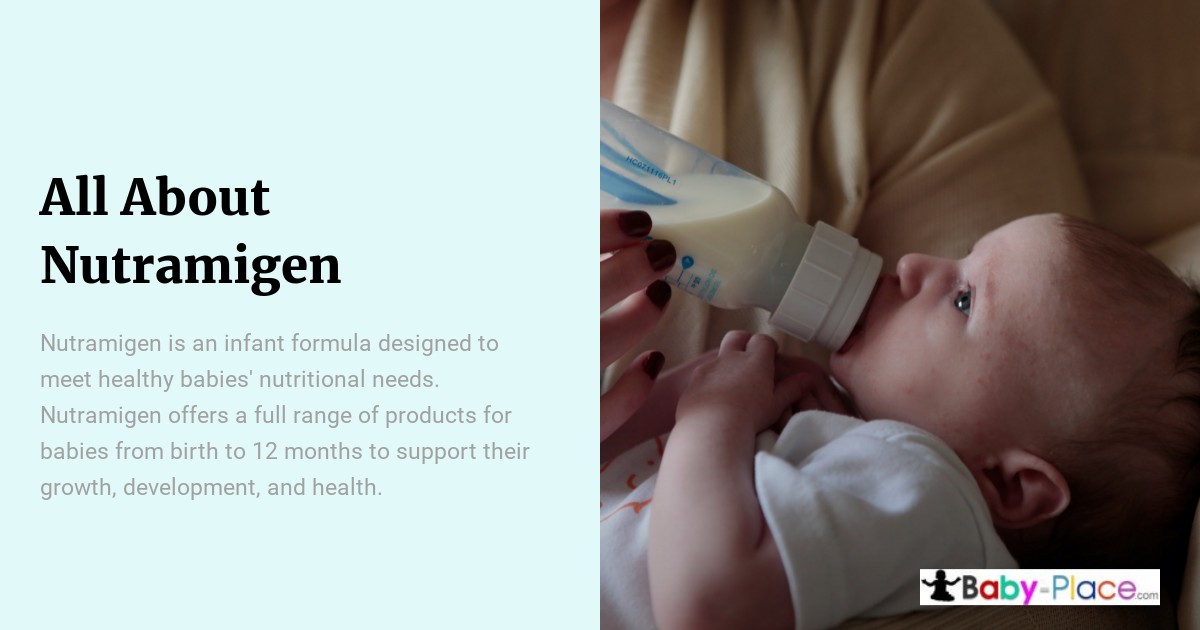
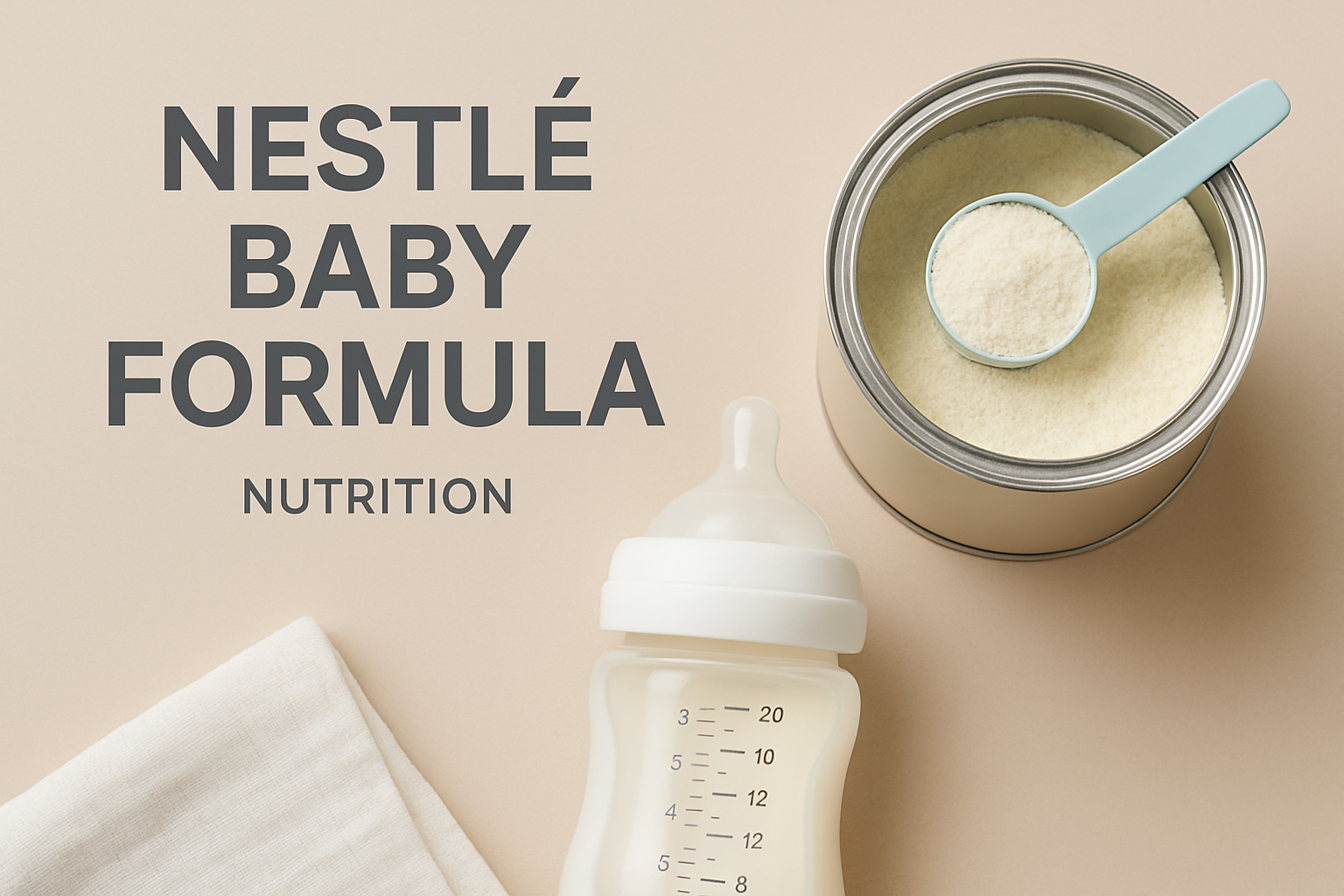
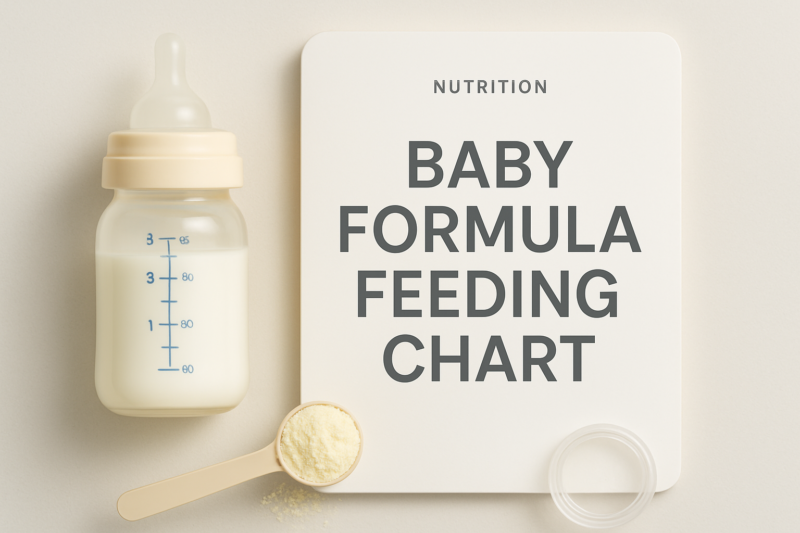
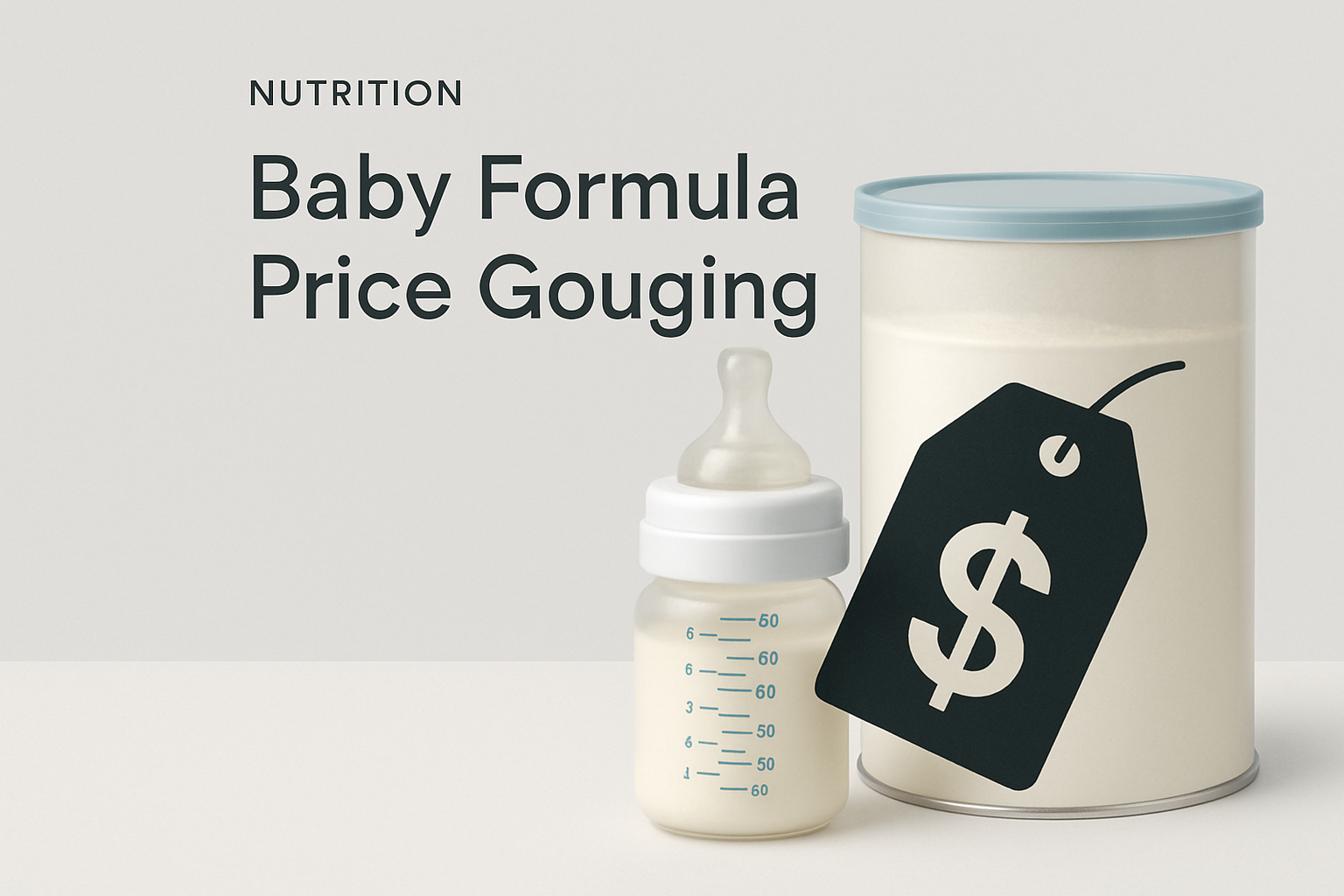
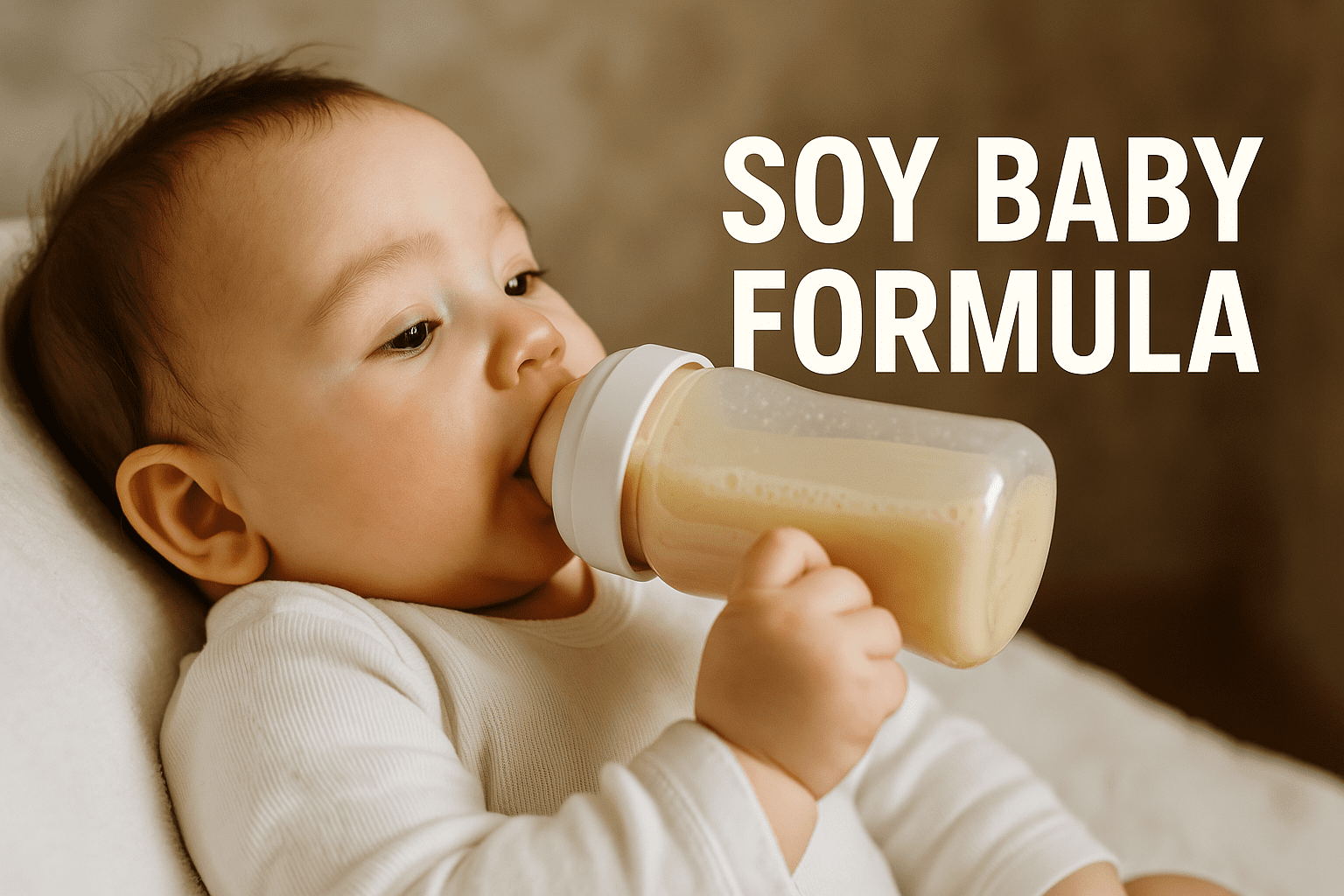


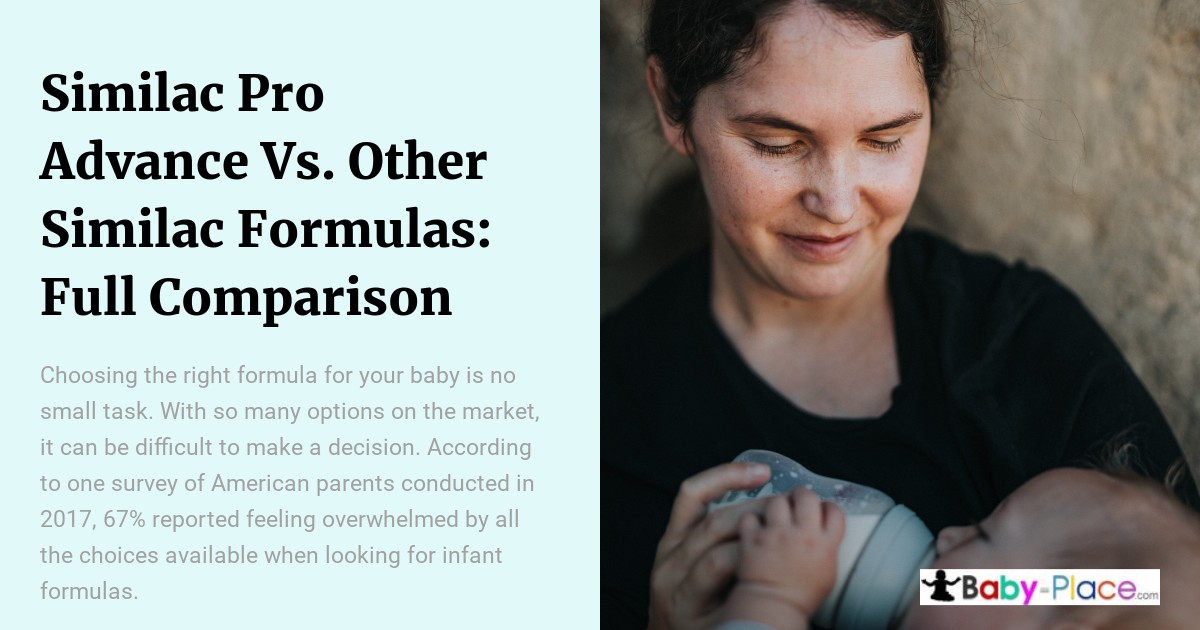
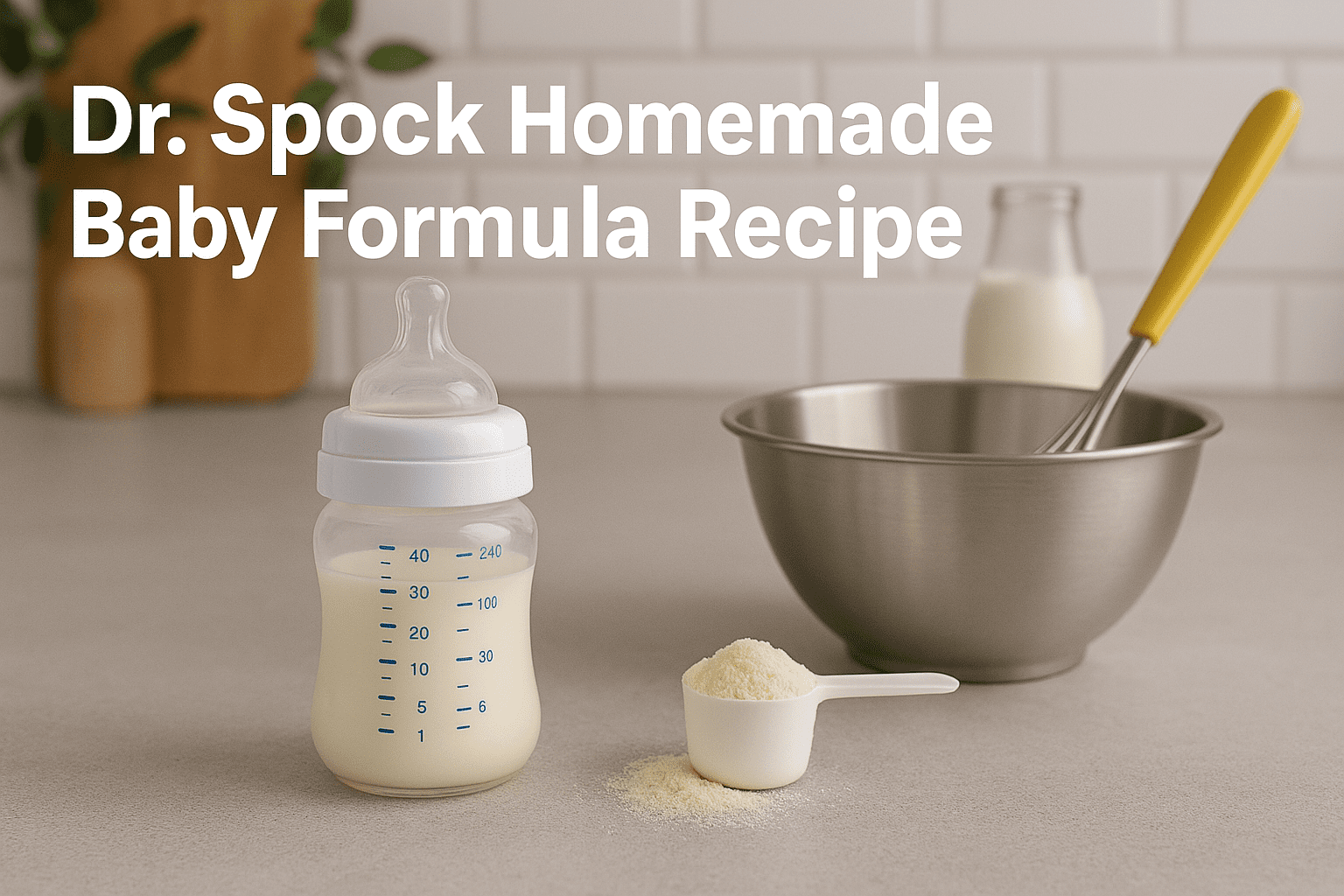
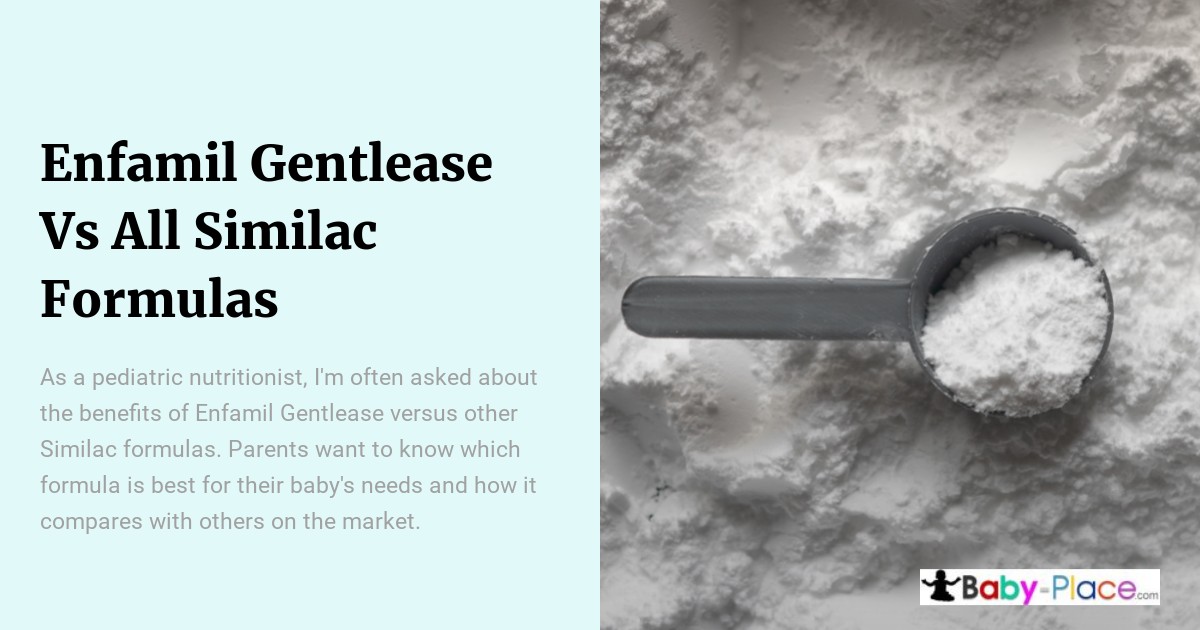





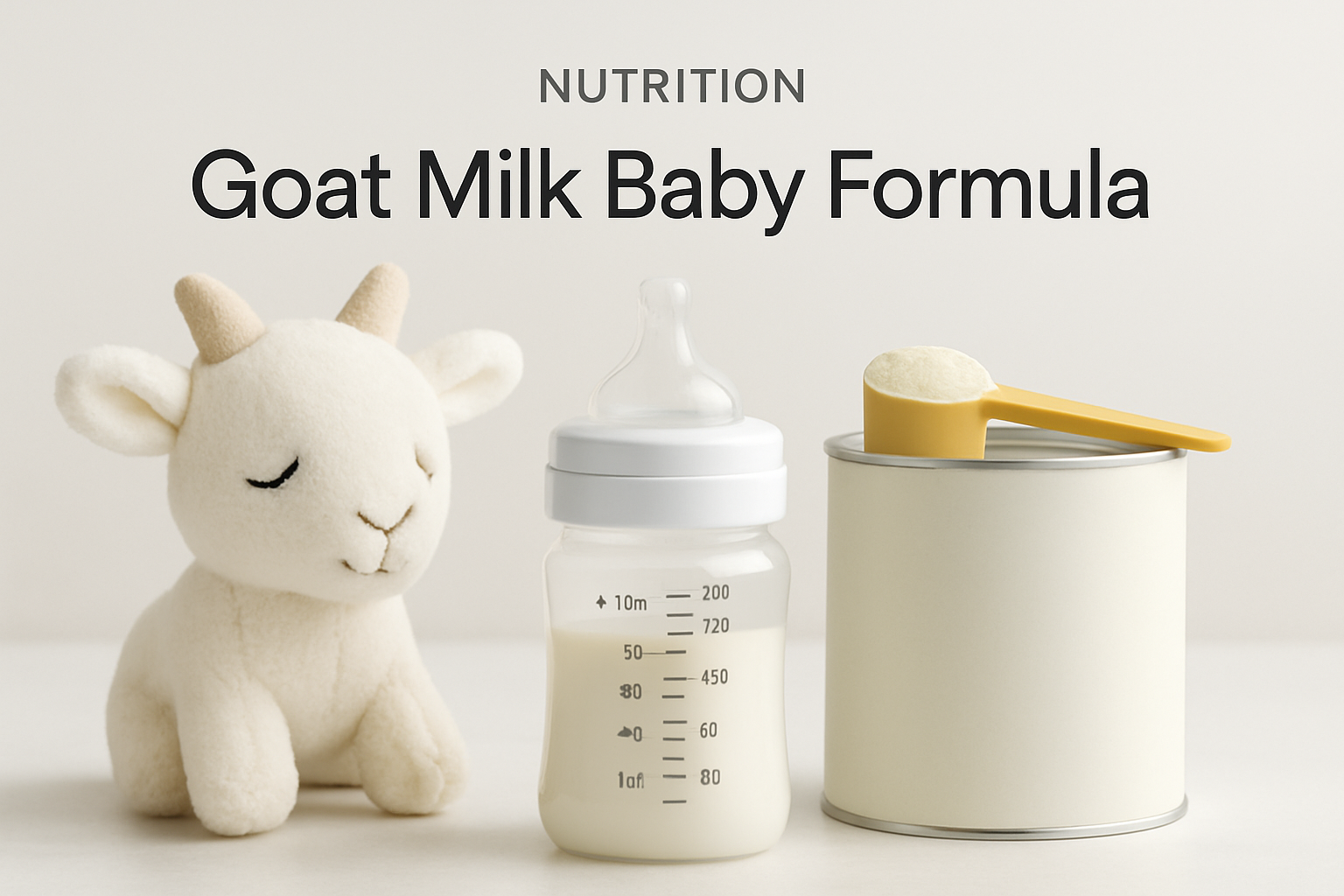
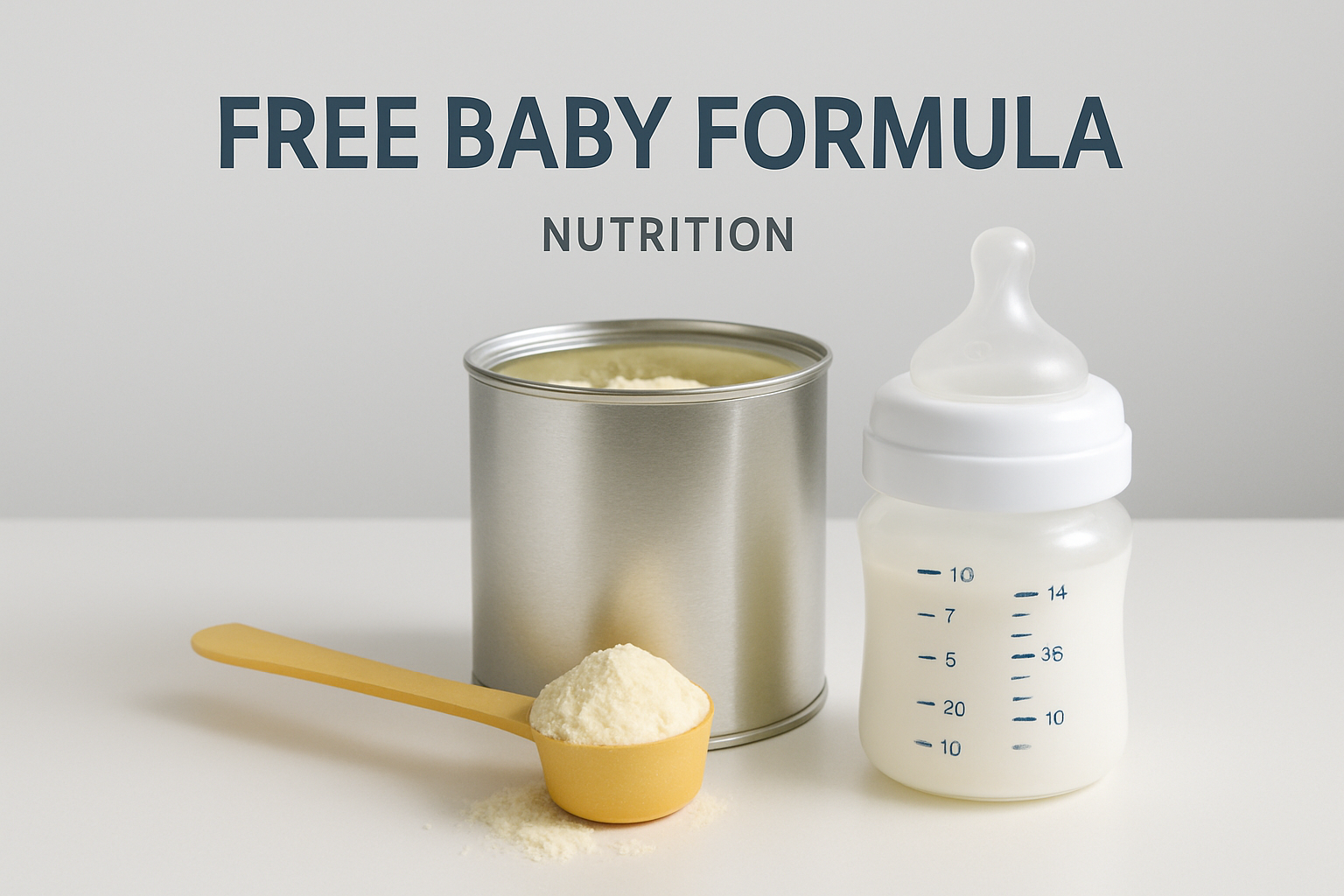
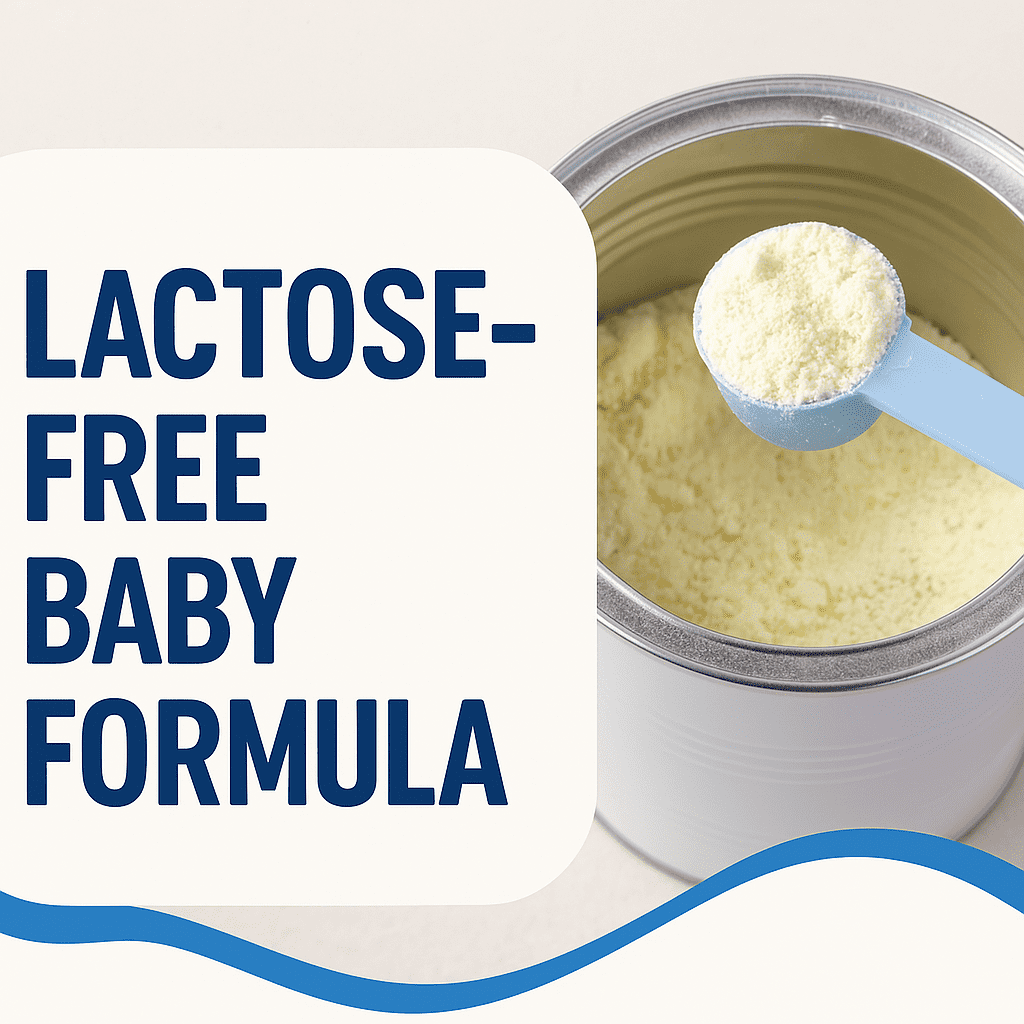




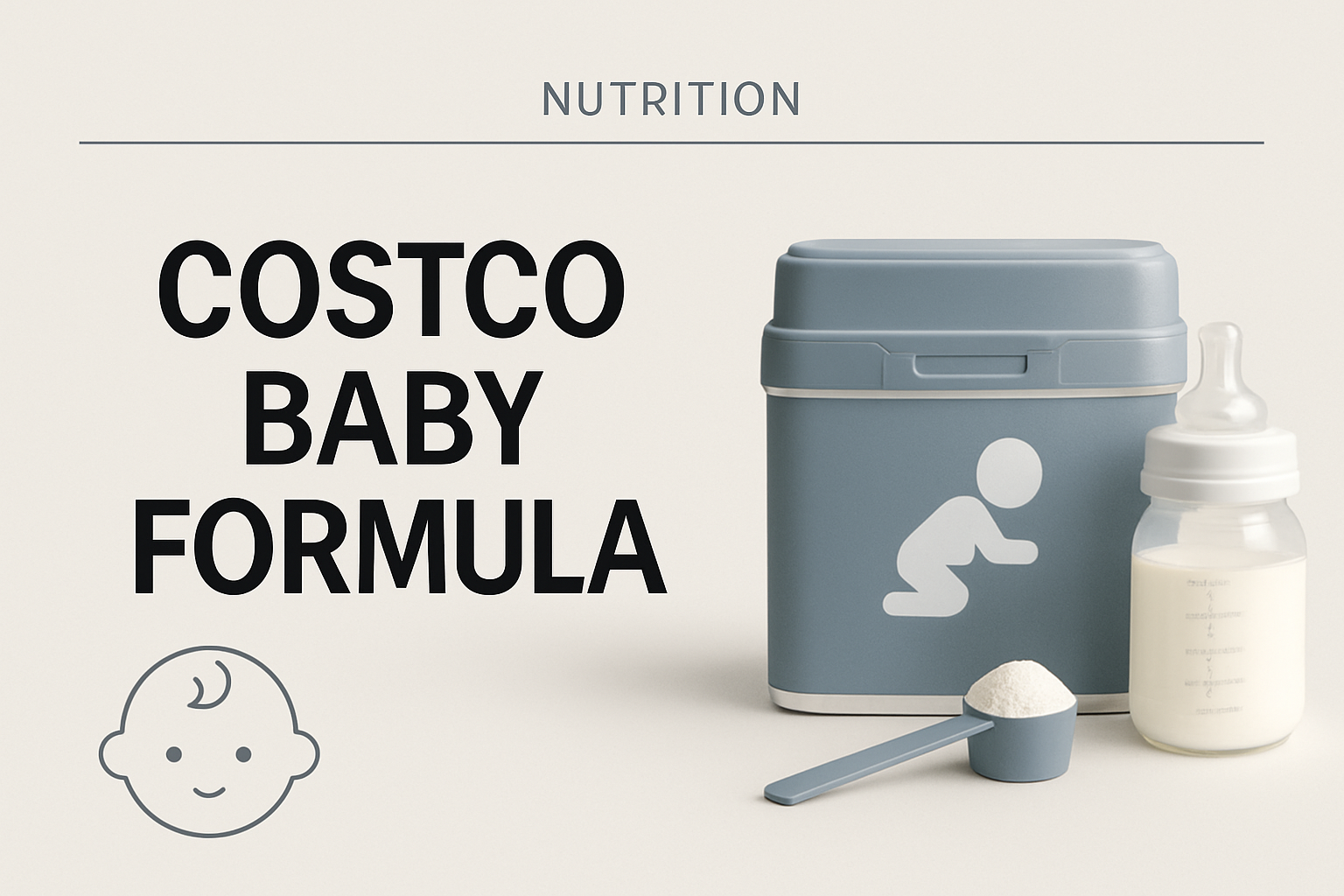

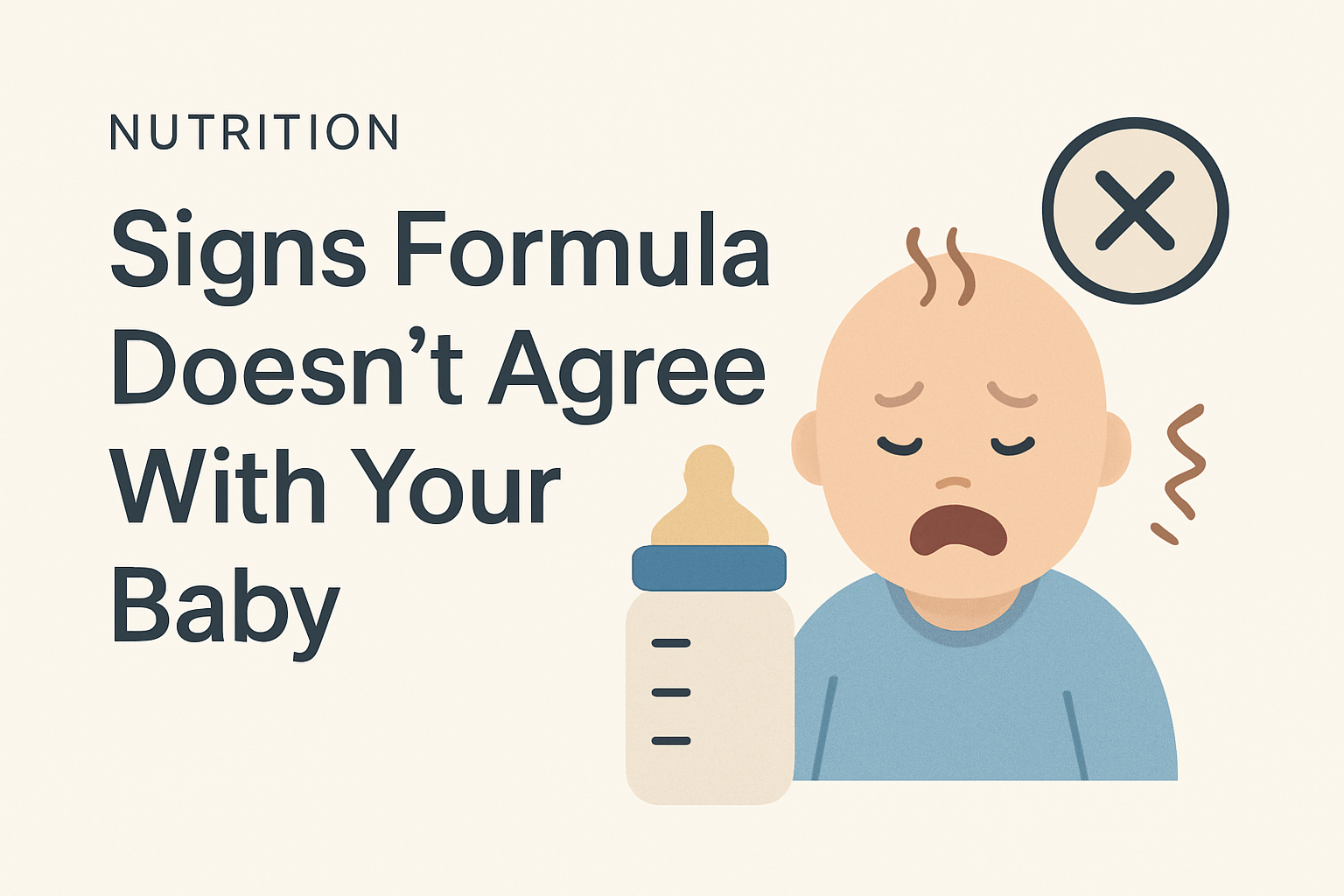
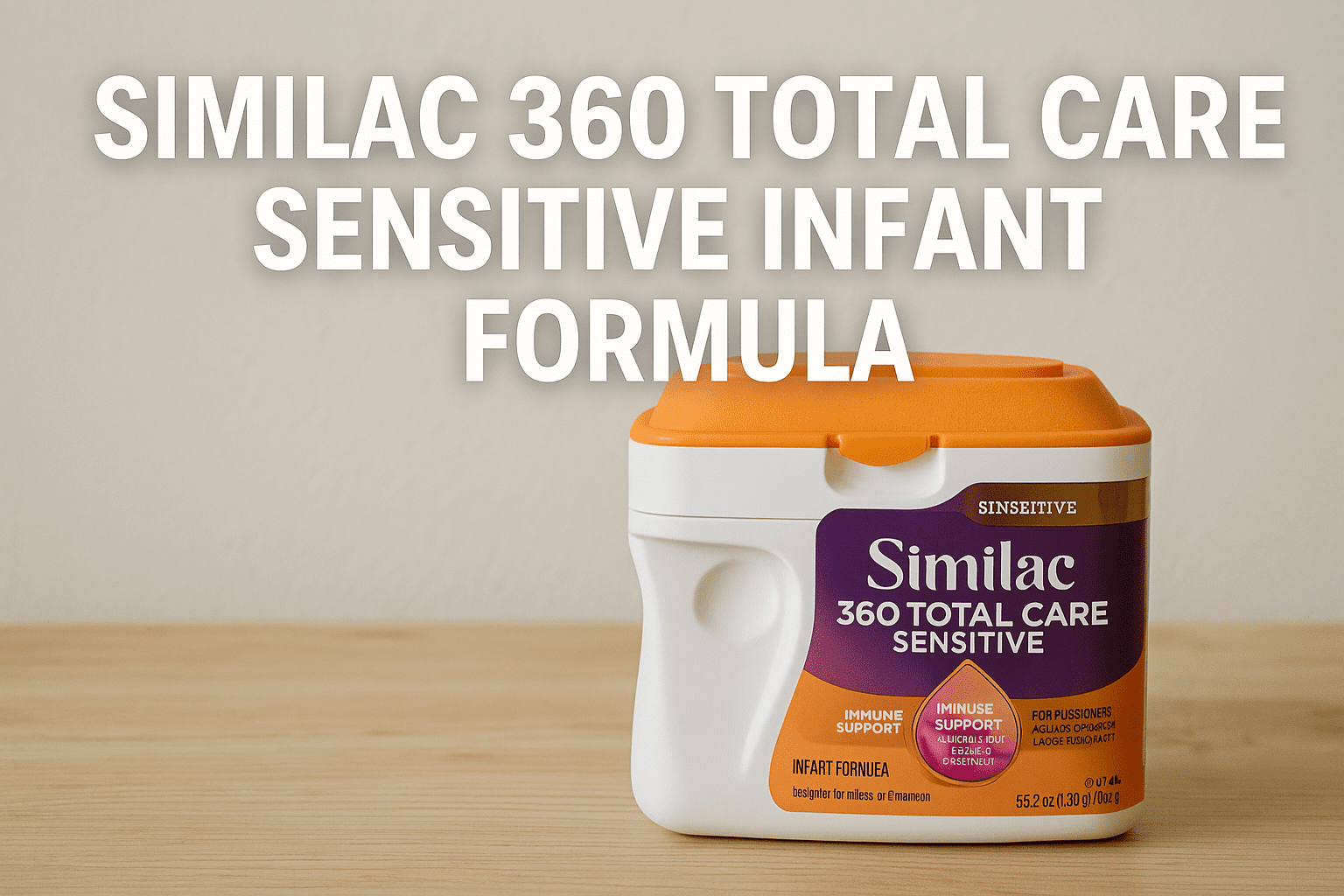

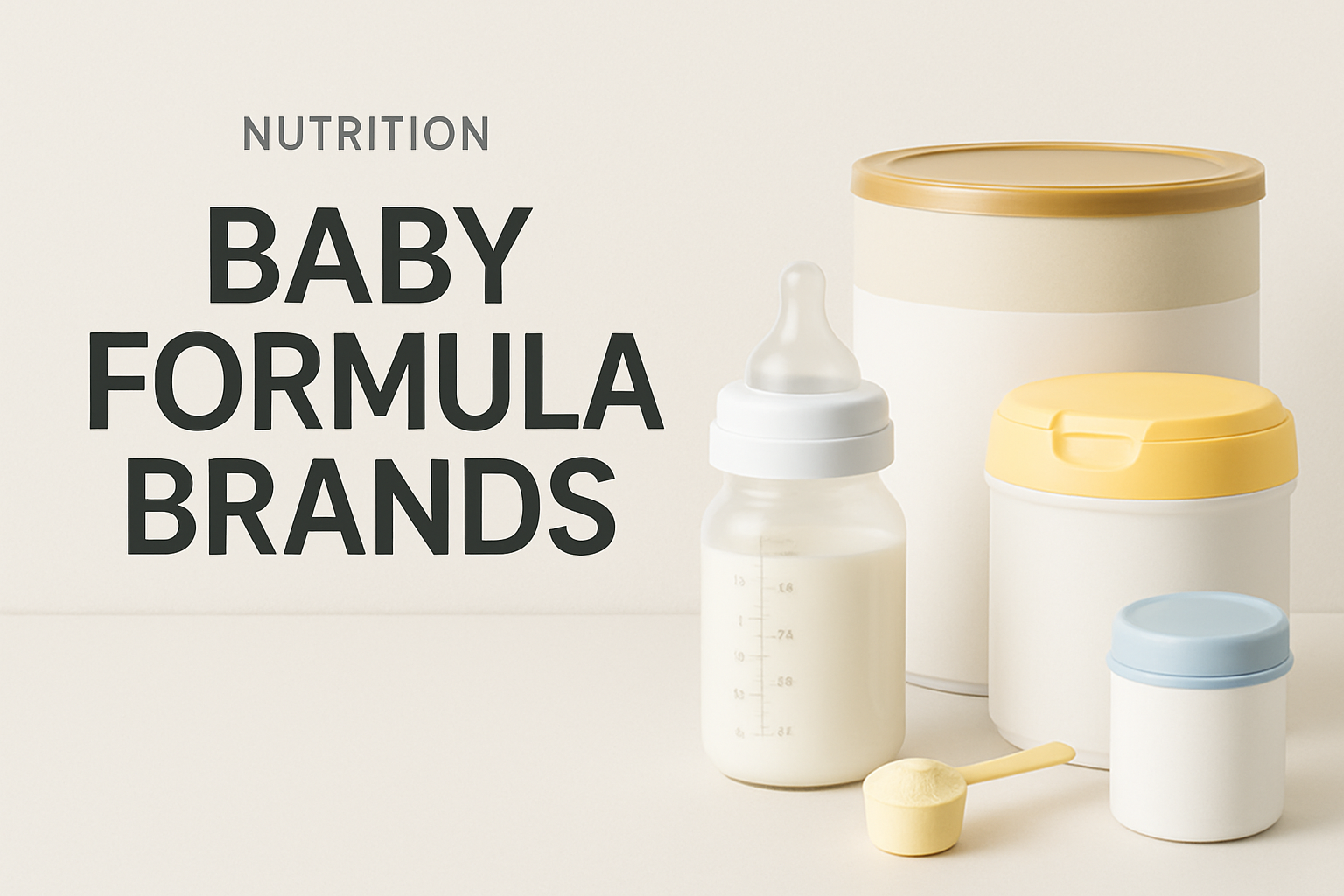

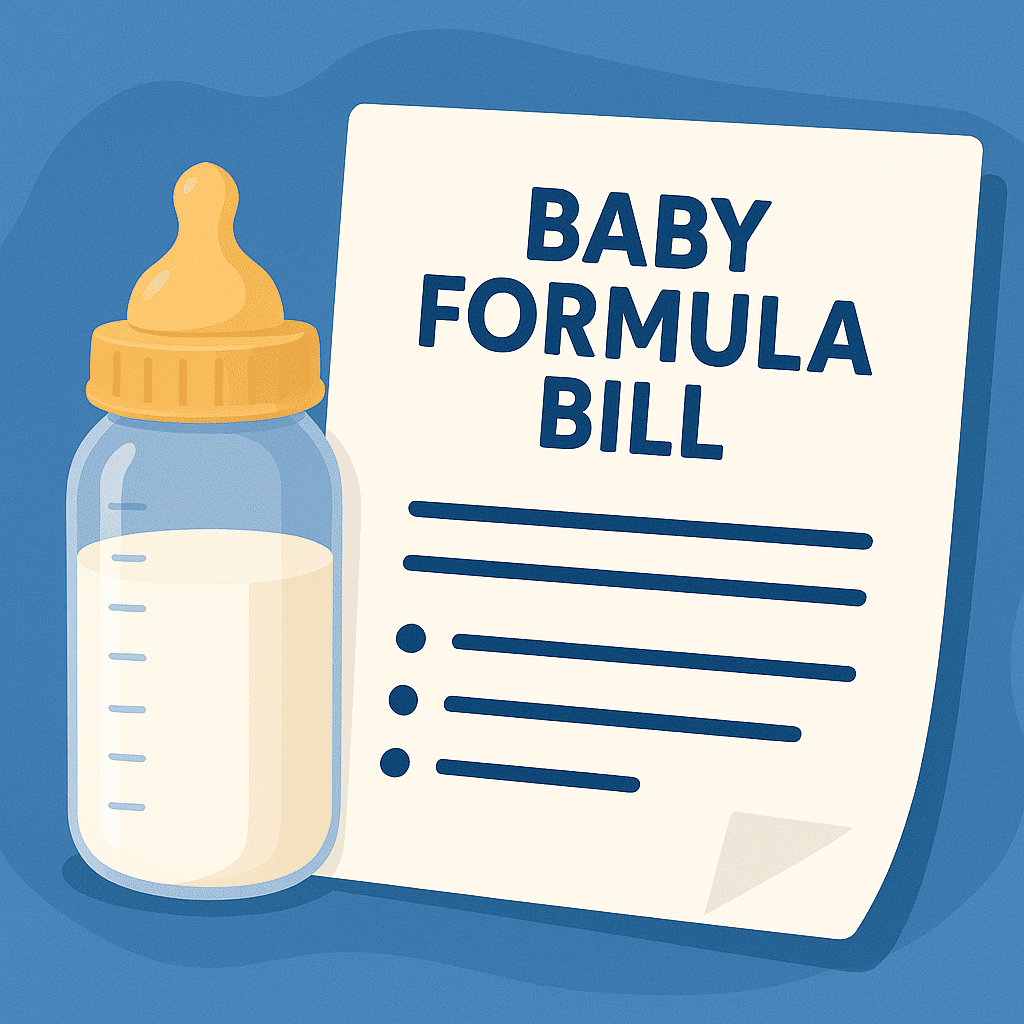
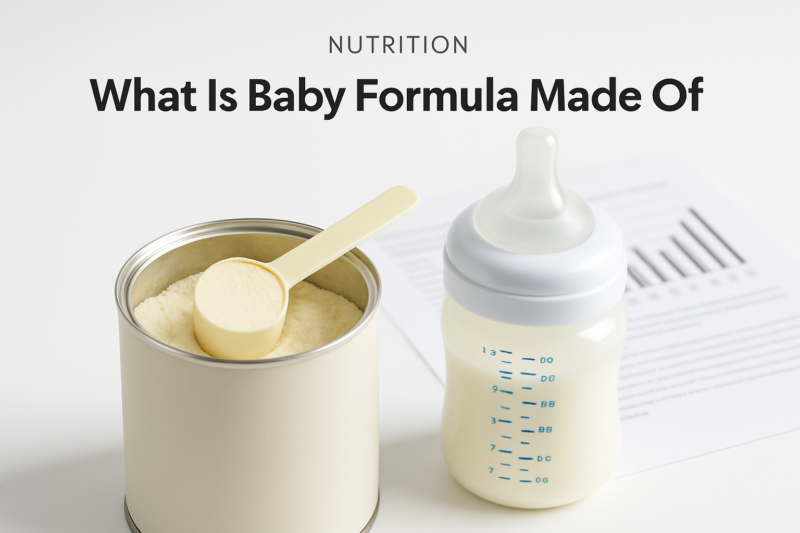

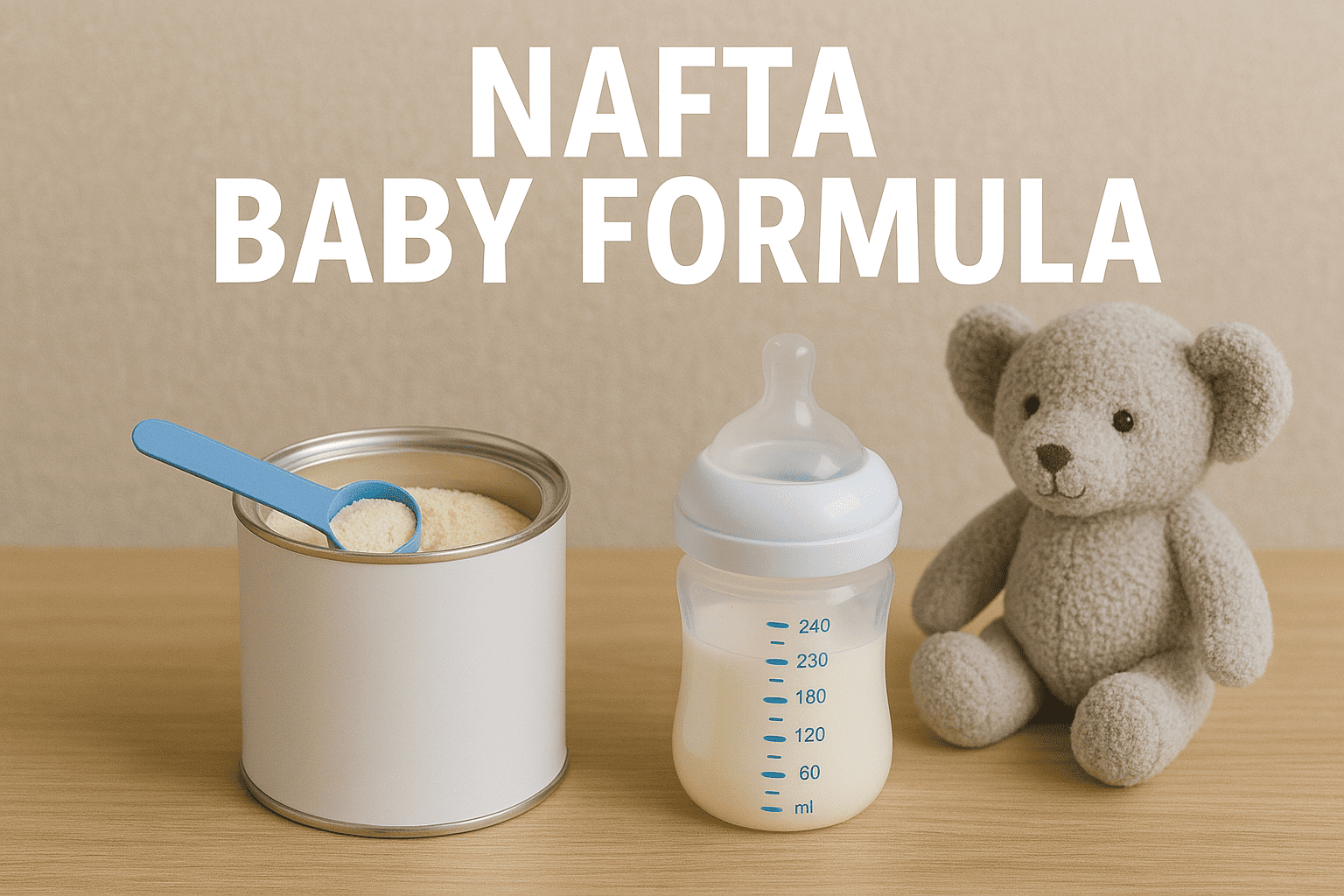
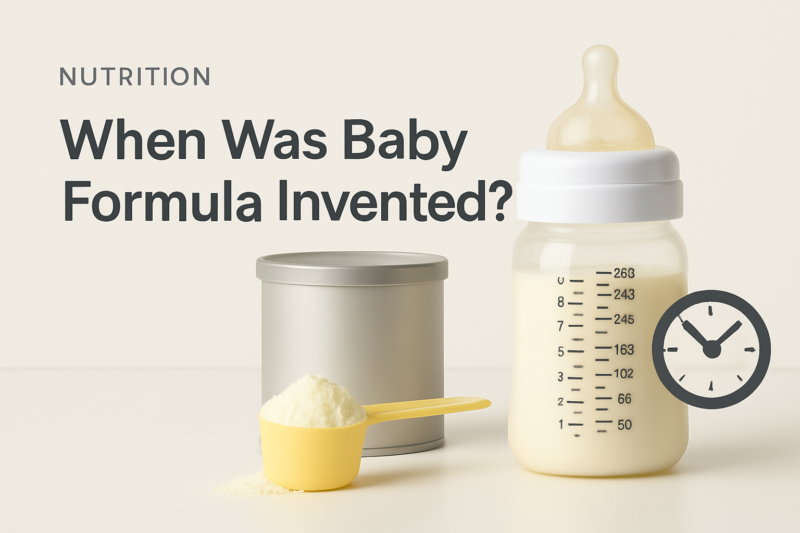
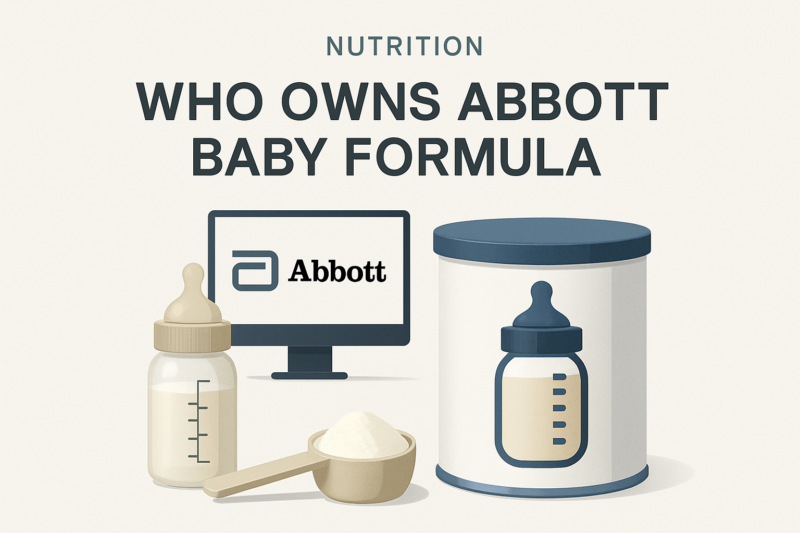




![[Recipe] Homemade Baby Formula Recipe](https://baby-place.com/wp-content/uploads/2025/04/homemade-formula-recipe-e1755526887889.png)
![[Recipe] Making baby formula at home](https://baby-place.com/wp-content/uploads/2022/12/baby-formula-recipe.jpg)